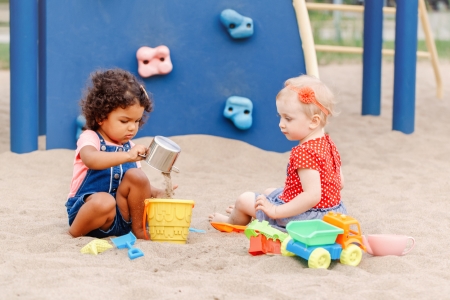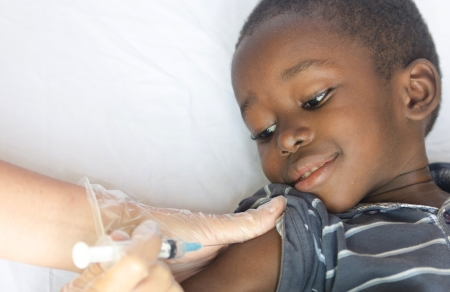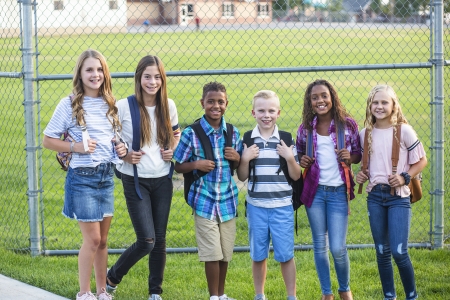Preschool and playdates are intrinsic parts of a toddler’s life, especially when moms and dads are at work. In our previous blog, we explained how the Covid-19 vaccine helps protect our youngest children from severe illness. We covered 5 central issues.
Below, we will update you with a brief review. However, we recommend that you read our entire article on the 5 Truths about Kids and the Covid-19 Vaccine.
6 Months Old: The Magic Age for Safe and Effective Covid-19 Vaccines

These Two Friends Don’t Understand Viruses. However, They’re Just Happy They Can Have a Safe Playdate in the Park.
The first two central issues we examined for parents were Safety and Effective Protection.
1. The vaccines are safe for babies, toddlers, and preschoolers from age 6 months and older. Now, parents can feel relieved when they drop their young ones to nursery school or accompany them on a playdate with little friends.
2. The Covid-19 Vaccines are effective at preventing serious illness in our young children. Remember that previously, children ages 6 months to almost two years could not even enjoy the protection of masks. Now they can be protected from severe Covid-19 infection and hospitalization, with vaccination.
FLASS Answers Three More Burning Questions for Little Ones Who Want Preschool and Playdates
3. Of course, parents want to know if there are side effects to the vaccinations. Thus, we detailed what minor side effects parents could expect. Slight fever, injection site irritation, dizziness, and nausea might be evident after the Covid-19 vaccine. We also reminded parents such symptoms are short-lived and mild.
4. Sometimes parents become concerned about the size of their children, and we posted the reassuring but little-known fact that dosage for the Covid-19 Vaccine is based on age, not size or weight.
5. We also reassured parents whose babies had already survived Covid-19. Without negating natural immunity, we affirmed that children could attain a higher level of protection from getting severely infected again. Thus, parents can become more comfortable with preschool and playdates.
Details Beyond the Big 5 Truths for Covid Vaccines for Toddlers and Babies

It’s Clear, He Has No Fear of the COVID-19 Vaccination.
As stated above, we explained the dosage for babies and toddlers was figured out according to age. Now, let’s take a look at the prescribed schedules for each of the approved vaccines for babies from 6 months of age to 4 years.
- For the Pfizer Vaccine, go to the doctor and give your baby the first one. Then, wait three weeks before taking the baby to the doctor for the second dose of vaccine. Finally, wait two months before giving the baby dose number 3.
- Likewise, the Moderna Vaccine has a regimen. After the first Moderna Vaccine shot, you must wait four weeks before giving the baby dose number two.
- Important Note: The two choices of vaccine, Pfizer, and Moderna are absolutely equal in safety and protection.
Coverage for Older Children Beyond Preschool
Whereas ages 5-17 might no longer be involved in preschool, we know they will want to go Back-to-School and engage in sports and social activities. Thus, it seems appropriate to include a little extra information about their vaccination regimes.
- For the Pfizer vaccine, the prescribed routine is to wait three weeks between the first and second shots. Then, the waiting period will be five months before giving your child the first booster.
- The Moderna vaccine requires four weeks between dose number 1 and dose number 2.
- Remember, there is no difference in protection between the Pfizer and Moderna Covid-19 vaccine.
Special Details: What to Do if Your Child has Covid in Between the Series of Shots

“Back-to-School” Means, Checkup On Your Older Children’s COVID-19 Vaccination: Do They Need a Booster?
At this point, FLASS extends information for children who have recently survived Covid-19.
According to the CDC, they might take a 3-month delay in the next vaccine shot. That means they could delay their next vaccine or boost by “3 months from when their symptoms started…” Likewise, if they had no symptoms, they might judge the date from “when they first received a positive test.”
Did you know that “Reinfection is less likely in the weeks to months after infection?”
After Covid-19, Before Preschool or Play-dates: Time to Talk to Your Doctor
FLASS recommends you talk to your doctor if your child endures a Covid-19 infection before completing the course of vaccinations. Many factors could affect your decision to give your child the next dose of vaccine sooner than three months.
- For example, there might be an added personal risk of a severe disease without added protection.
- Your doctor will undoubtedly check the Covid-19 Community Level to assess such risk. Doctors determine this by checking the number “of the new admissions and inpatient beds metrics…” These are “based on the current level of new cases per 100,000 population in the past 7 days.”
- Moreover, your doctor might double-check the current Covid-19 variant causing illnesses. “Even if a variant causes less severe disease in general, an increase in the overall number of cases could cause an increase in hospitalizations…” That would point to taking the next vaccination sooner than the 3-month conventional rule.
- Therefore, be prepared that your doctor might recommend you have your next vaccination “sooner rather than later.”
Preschool and Playdates –and Taking Shots
Last but not least, in this blog, the doctors and staff of Florida Lung, Asthma, and Sleep Specialists thought you’d like some tips about the frightening challenge shots, needles and vaccinations pose to your little ones. The below hints are for the human side of taking shots. Alternatively, we include these tips because we remember how scary shots can be.
The Warning: Tell Children the Truth
1. Feel free to tell your child, “Shots might “sting a little bit, but only for a brief time.”
2. If your child can count, here’s a good hint. “If you take a deep breath, you can blow out the sting before you can count to five.” (This won’t work at age 6 months, but you can blow on that tiny arm.)
3. Older children need to know that “We all need vaccines to keep us safe from germs that might make us sick.” (They appreciate being included in the scientific secrets.)
4. One Caveat: Please do not give your child any type of pain reliever before the vaccination.
5. During the injection, we advise parents to avoid scolding their children if they cry. Instead, make sure your child has a little toy or blanket. Don’t scold—your child if they cry. Additionally, avoid using shots as a threat.
6. Let your child bring a favorite toy or blanket for squeezing during the shot.
7. Distraction is a great ally. Involve the child with “a story, video, or conversation.”
8. Holding a child on your lap is a great idea. When the procedure is all over, apply hugs and praise generously.

Six Month and Older Children Can Be Protected by the COVID-19 Vaccine.
Lastly, after you and your child arrive home from the vaccination event, we offer another helpful tip. This one has actual medical as well as psychological value.
Simply hold a cool, damp cloth on the arm. This will reduce pain and swelling on the injection site and make your child feel your care and sympathy.
Before long, they will happily relinquish laying on the couch for preschool and playdates, which you saved with the Covid-19 vaccine.
A Special Thank You
As always, FLASS thanks you for reading our blog. And we hope you visit us again soon for respiratory news you can always use.

